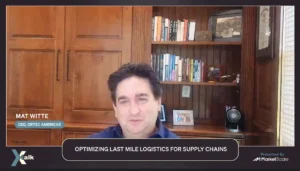Enjoying Sudden Success? Protect Your Growing Wealth for Generations
If you’re a rising professional in your 30s or 40s, perhaps an executive in the booming oil and gas sector or a talented software developer, then you’re likely achieving enviable financial success. But how can you ensure that all your newly accumulated wealth is protected for both you and your family?
There are a number of different planning vehicles that you can choose from. Life insurance policies may not seem particularly exciting, but they’re inexpensive and a good idea for people in leadership roles whose absence would result in a significant financial impact, such as a business owner. Education accounts (529 plans) are great for funding an individual’s education, whether that person is a child, a grandchild, or someone unrelated. But one of the most effective strategies for looking after your heirs is establishing a trust.
What is a trust?
A trust is a separate entity that holds assets for the benefit of someone. If you’re looking to transfer money to your family, you can start a trust fund with as much or as little money as you wish — from a few thousand to millions of dollars. Trusts can be a great strategy for reducing estate taxes on transferred wealth. Currently, estates avoid the estate tax altogether when the estate plus prior taxable gifts are valued at less than $11.4 million (2019 threshold; double that amount for a married couple). But if you’re planning to leave more than that to your family members or beneficiaries, then transferring assets to a properly structured irrevocable trust can provide some tax savings and may also offer protection from creditors or lawsuits. In addition, a trust can enable you to determine who pays the income taxes on the distributed cash (either the one funding the trust or the beneficiary).
Why establish a trust?
Funding a trust allows you to grow assets outside your estate to help soften the estate tax burden, while providing control over your money. For example, establishing a specialty trust to hold royalty interests (i.e., oil and gas royalties) can mean that the money can stay in the trust as you’ve specified for generations, and you don’t have to worry about transferring title when someone passes away. The title remains in the trust, and you won’t have to contact the oil and gas operators for division orders. Similarly, assets held in trust do not have to be reported in probate, which simplifies the court process.
A trust can also allow the trustmaker to place provisions (such as quarterly drug tests) on the distributions that persist past the death of the trustmaker. It can hold funds until a triggering event, such as death or marriage or college graduation, occurs. A special needs trust is a great way to provide for disabled adults while enabling them to qualify for benefits, much like a veteran’s trust.
Trusts also can provide divorce protection. If the beneficiary gets divorced, a properly structured trust is not considered part of the couple’s joint property and won’t be divided with the spouse, protecting a child’s wealth from in-laws. (Note, however, that a judge is allowed to take those assets into consideration when dividing the divorced couple’s community property.)
With the current volatility in federal government, the estate tax exemption may decrease in the future. Getting your assets out of your estate now, and letting them appreciate in value outside your estate, will help protect your estate if the tax exemption drops. The estate tax exemption is currently set to go back to pre-2017 levels ($5.25 million, to be adjusted for inflation) after 2025, unless Congress acts to extend the current threshold.
Considerations when setting up a trust
To determine how to best structure your trust, you must first determine your main priorities: Estate planning? Liability protection? Something else? An irrevocable trust generally can’t be modified, amended or terminated without the beneficiary’s permission; it removes all of the funder’s rights of ownership to assets listed within the trust. Since the trustmaker has given up significant control over those assets, an irrevocable trust can offer some asset protection and tax benefits.
On the other hand, a revocable trust allows the provisions of the trust to be altered or canceled by the trustmaker during his or her lifetime. Income earned on the assets is taxed to the trustmaker during the life of the trust and transferred to the beneficiaries upon death or at the occurrence of a specified event, such as mental incapacity. It’s important for all those considering a trust to consult an estate attorney, in addition to an accountant, to properly structure the trust and prevent familial confusion and misunderstandings at the time of death.
Is a trust right for you?
Weaver’s Private Client Services professionals help high-net-worth individuals and business owners safeguard the financial futures of their families. We can help you design long-range plans for the growth and protection of your wealth, while providing strategies and tactical assistance to manage your current challenges. To find out more, contact us to request a complimentary consultation.









